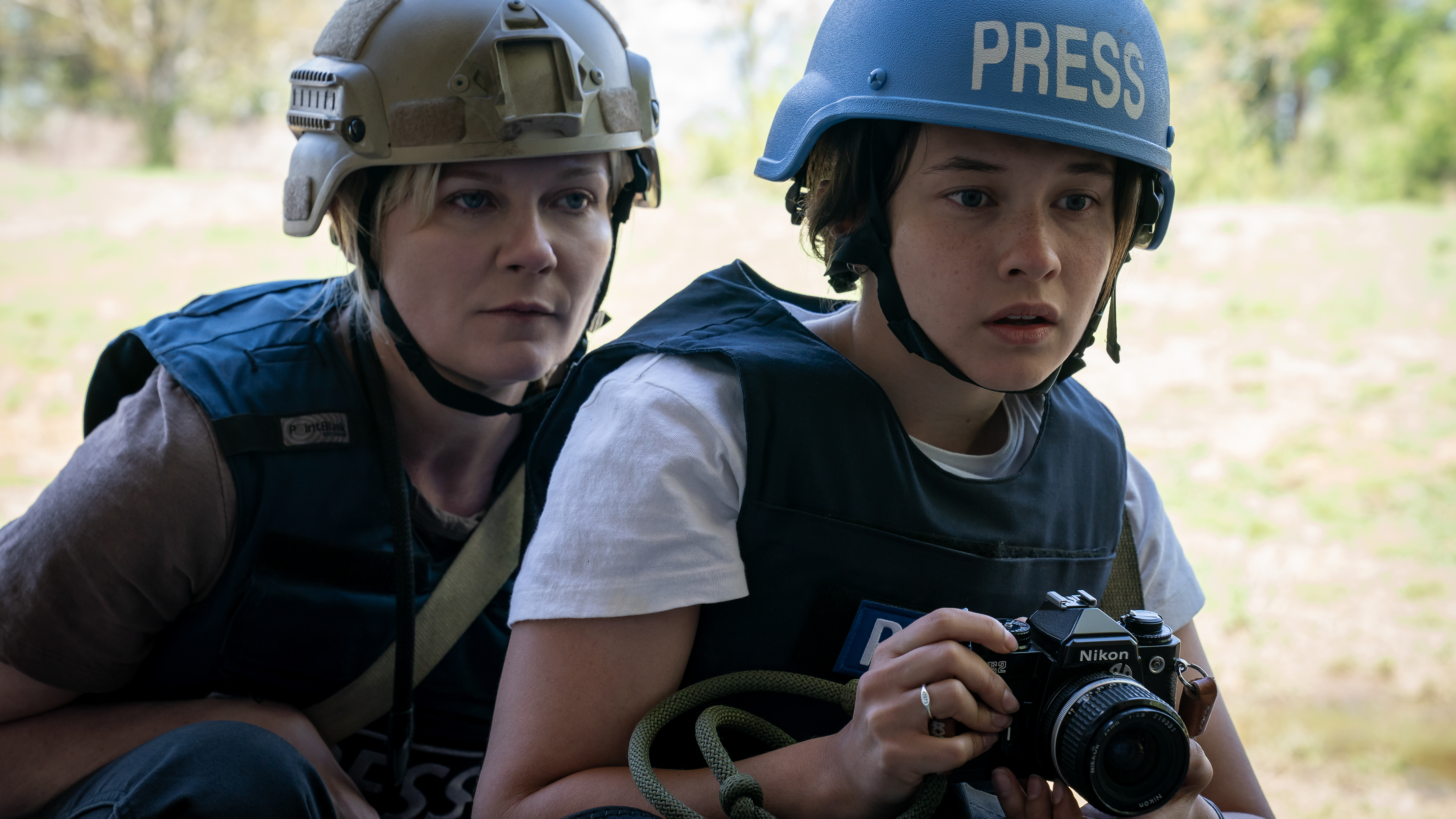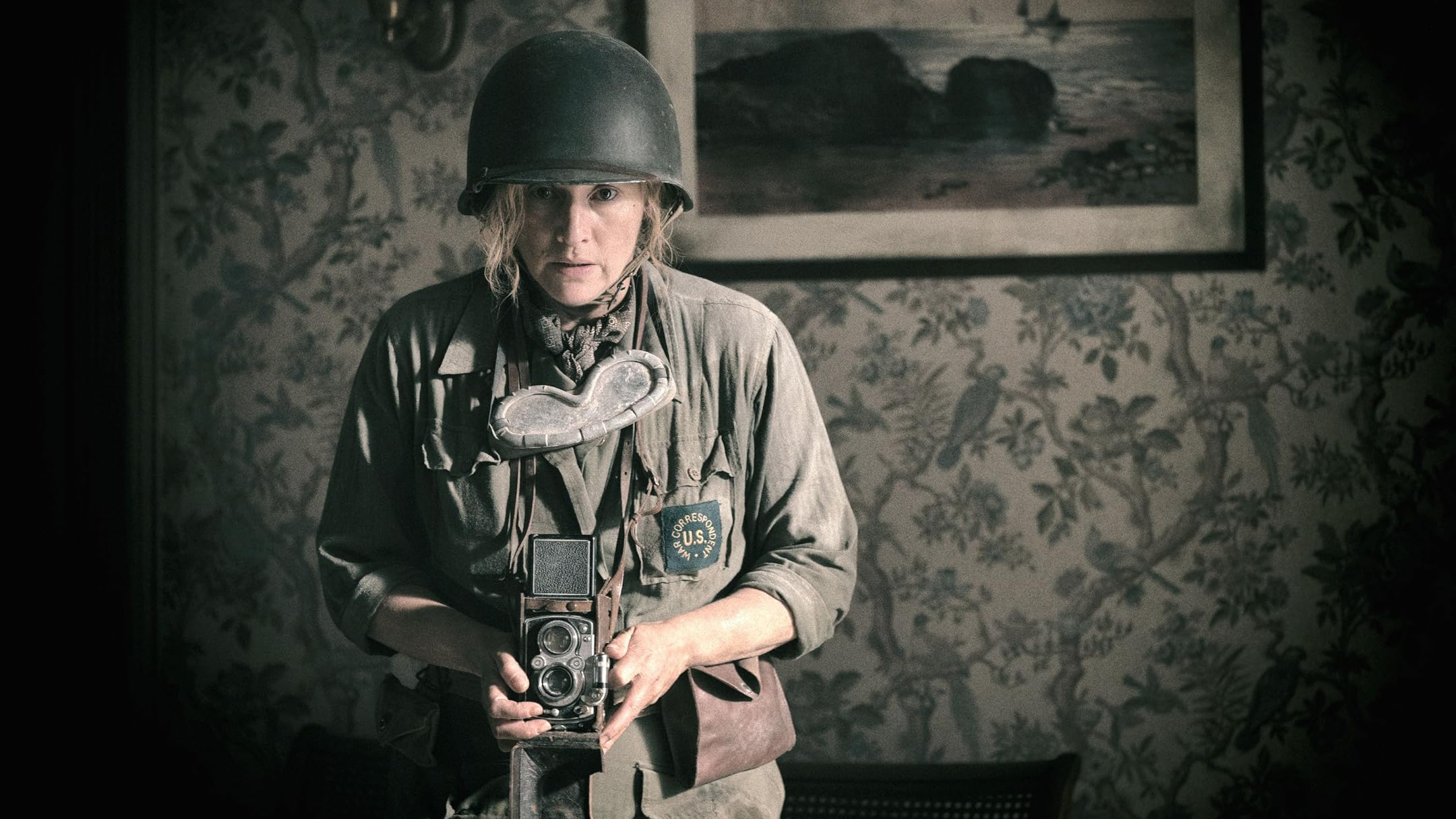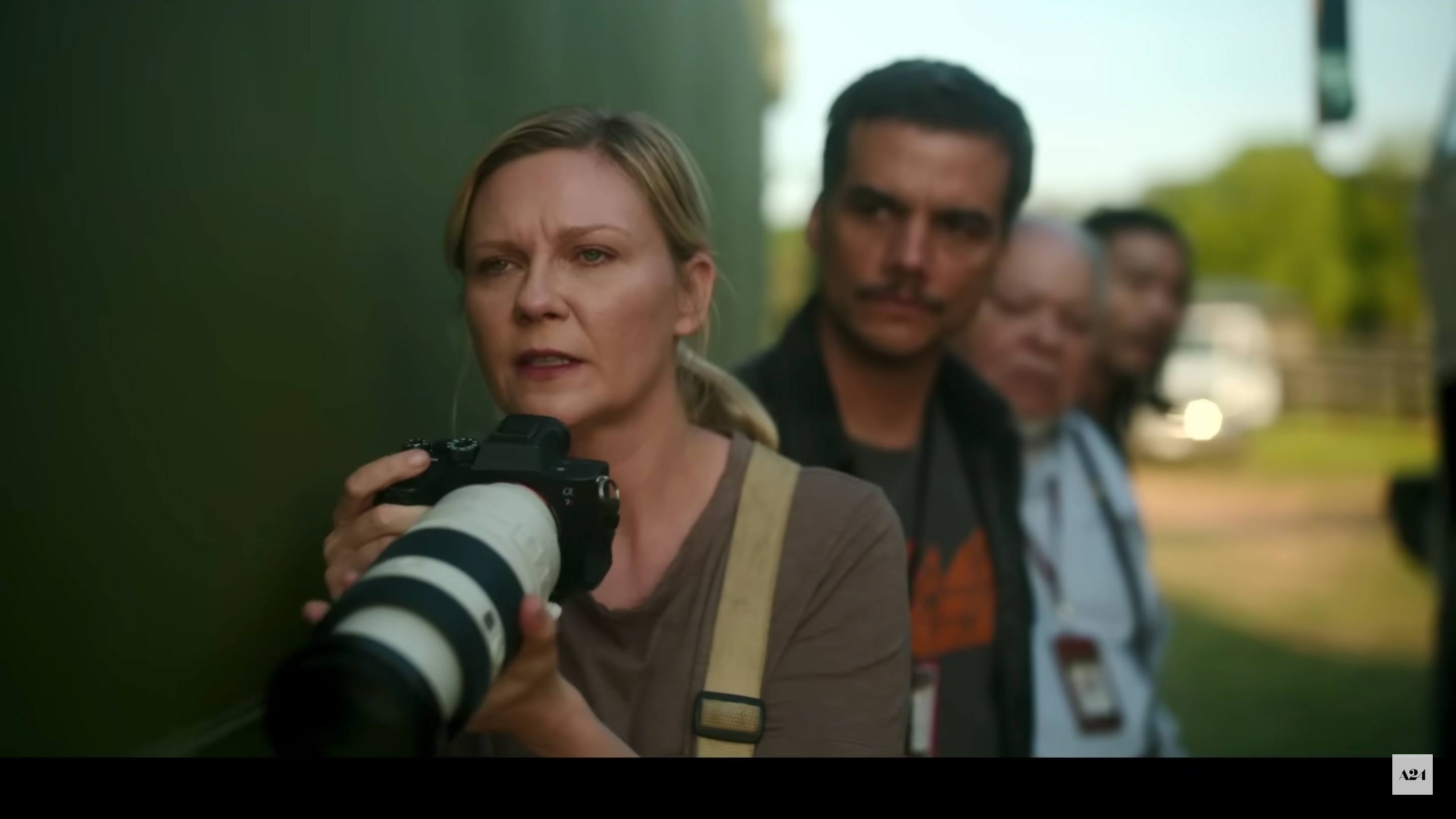
When I scrolled through the latest additions to Prime this weekend looking for something to distract me from the world, I was attracted to the grand war-movie art of Civil War. Helicopters buzzing over the Statue of Liberty in a scenario that, frankly, doesn't seem entirely beyond imagination these days.
I honestly really wanted to see that possible near future on film in the style of a great war movie, or perhaps something more action-before-common-sense. The tagline "An adrenaline-fueled thrill ride through a near-future fractured America balanced on the razor's edge" seemed to promise the kind of straightforward entertainment I had in mind so, for once, I just hit play rather than falling asleep still scrolling through the possibilities.
I've not been keeping up with movies of late, and other than the title, tagline, and the art I had precisely zero idea what the movie was actually going to see. The last film I'd tried to watch on streaming was Lee, starring Kate Winslet, which, if I'm honest, I felt a kind of duty to watch as a photography journalist. I started a bit late and when the film reached a natural lull, well, I just gave up for a bit (I have since come back and finished before writing this – I just have to be honest and admit I didn't manage it in one sitting – judge me as you will).

Now Lee is fine, but it wasn't as good a movie as I hoped. It felt, to me, a bit worthy and dutiful, and it certainly didn't do enough to make me keep going when I was tired. Partly, I think the subject is inevitably hard going – Lee Miller's life is real and she is known a photo in Hitler's bathroom and
It's subtle, but a real clue for me about the movie came from the fact the book it credits as inspiration early in the titles includes the publisher. It might as well have had a 'Buy Now' button! Perhaps this is how Sky do business, but it feels cheap and aggressively commercial.
Civil War, directed by Alex Garland and starring Kirtin Dunst as a war photographer called Lee (deliberately referencing Lee Miller) is, in that sense, very open with its flaws. And for me, by not trying to wrap itself up in po-faced self-importance, it makes the movie easier to just watch.

Now I also know from a rudimentary scan of the movie press that most of the world doesn’t agree with this assessment. No one is especially nice about Lee, but Civil War seems to infuriate photographers too by failing to capture what war photography is about.
Well, sure, I get that argument, though I’ve not actually been a war correspondent of any kind myself, and I imagine a civil war in your home country may feel different to anyone. I think, though, that as a piece of entertainment Civil War is better because it is able to distance itself from events like the holocaust - an inevitable part of the Lee Miller story, but not something that will be enjoyable to watch even if it is pitch perfect (which, in my view, it isn’t).
Was it over the top to call Dunst’s character ‘Lee’? I don’t think so. Some people need prompting to explore more and if this movie does it, why not?







